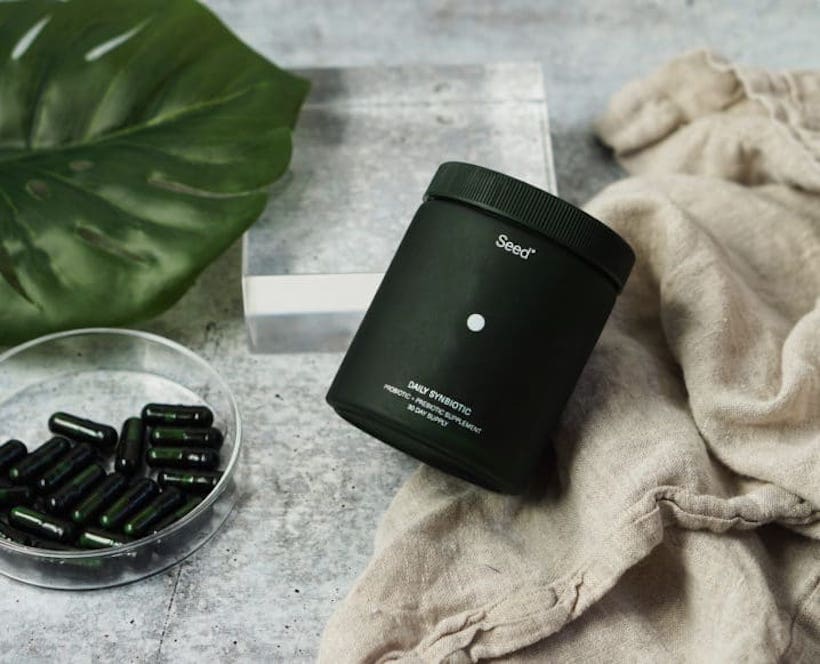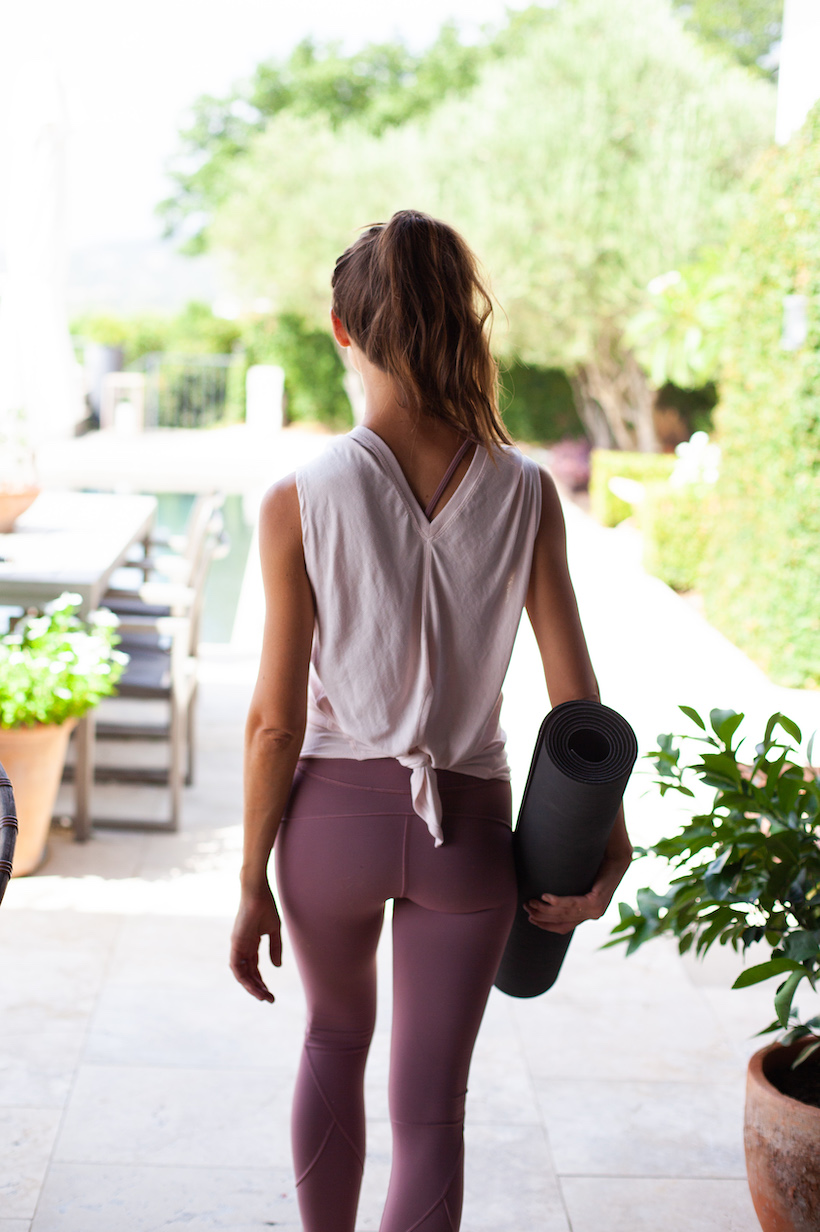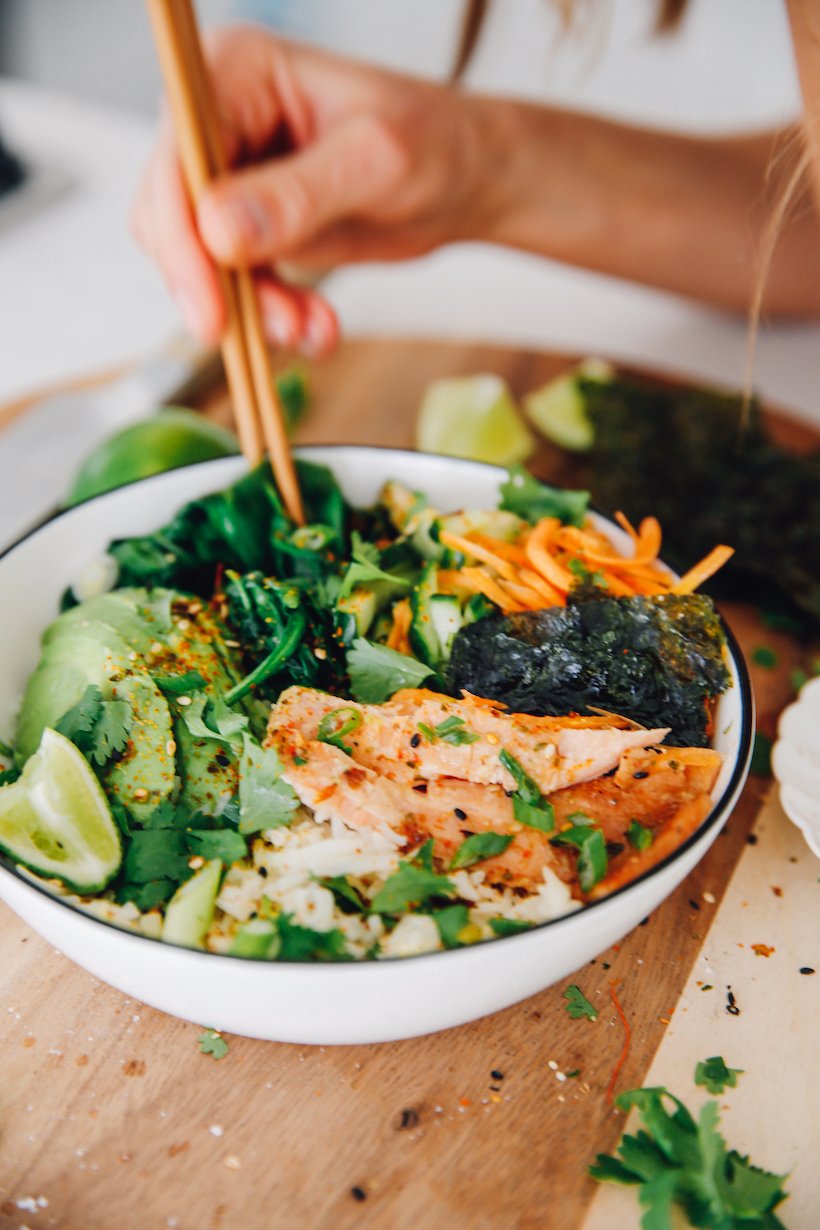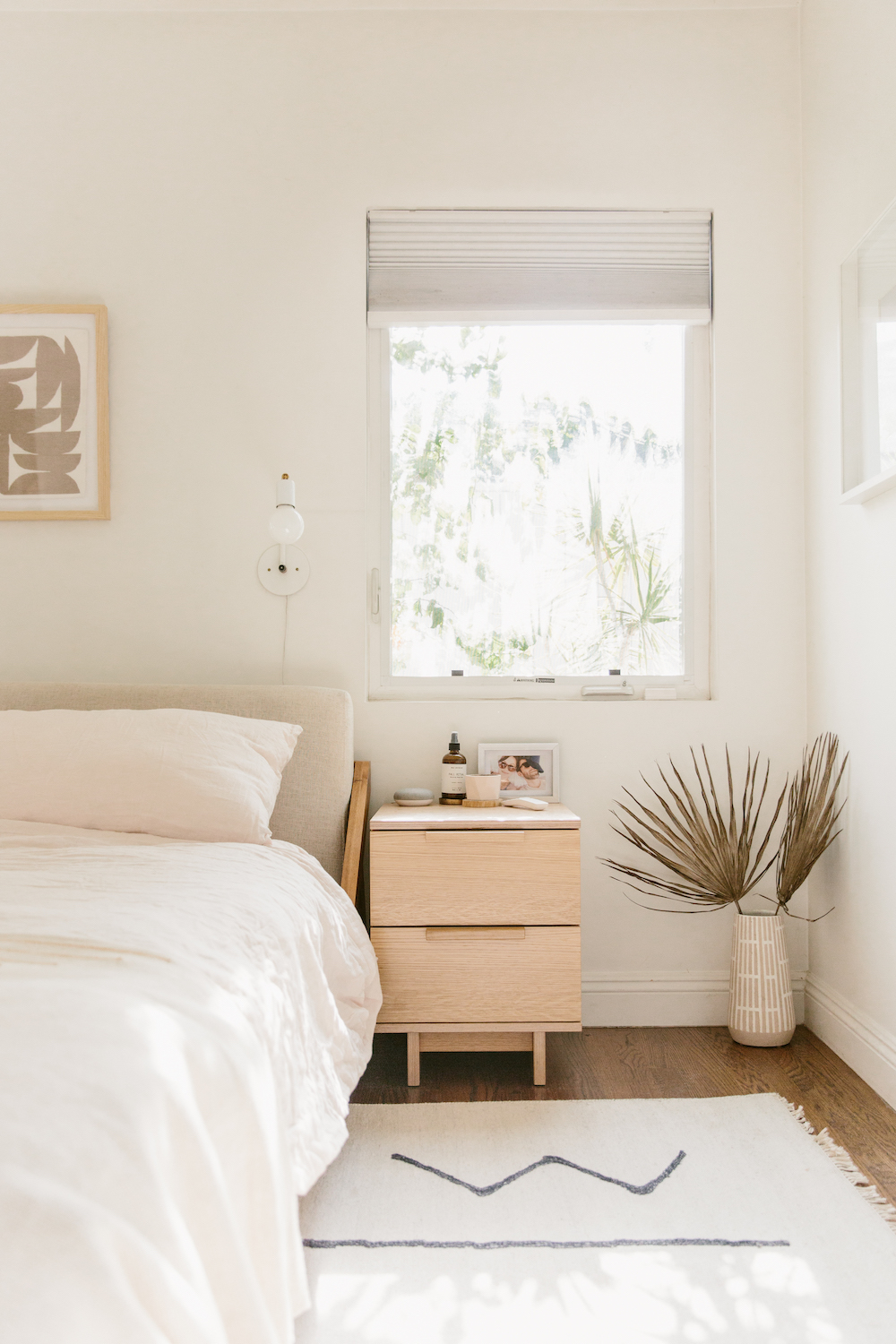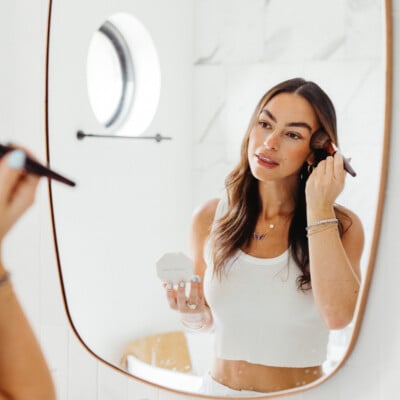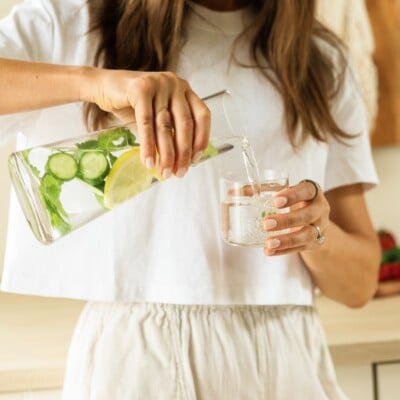I’ve long understood that stress can have a physical impact on the body, but it wasn’t until my first menstrual cycle during this pandemic that I realized just how much. If any of you have endometriosis or know someone who does, then you’re aware of the pain and discomfort that comes with it. Endometriosis is a disorder in which tissue similar to the tissue that normally lines the inside of the uterus — the endometrium — grows outside of the uterus. The best way I can describe the pain is like turbo-charged cramps, except in my case, I feel it all over my body, usually my thighs and sometimes my back. No two months are ever the same. Some, the pain is mild and totally manageable, others are worse and truly debilitating. Movement and “cleaning up my diet,” ie: less dairy, sugar, and processed foods, always tends to help. But April was a different story. We were exactly 3.5 weeks into quarantine at the time of my cycle, and the pain left me wrapped in a blanket most of the day while in a fetal position. I’ll spare you the fine print details, but it was so awful I thought something else might be wrong.
I turned to the most trusted resource available to us — the internet (I kid) — to do a little digging, and found that stress and anxiety can exacerbate endometriosis symptoms, especially inflammation. Diet and lifestyle changes were suggested as a way to alleviate the pain (no real shocker there.)

As I took inventory of the first 3.5 weeks of quarantine, it was filled with a plethora of wine, processed food, little movement, and more anxiety and stress than I’ve experienced in an entire year. It was no wonder I felt as awful as I did. Around the same time, Camille shared with me that she had suddenly been having a lot of digestive issues that mysteriously came out of nowhere when the quarantine began. This left me considering how taxing stress can be on our bodies, and reminds me that I’m in control of my choices. Either I do what I can to manage it, or let it get worse and experience that pain again.
Are any of you feeling physically different or noticing changes in your body because of stress? As I type this, I’ve finished this month’s cycle and can report that my symptoms were mild, which leads me to believe my small changes are working. It might be too soon to know if these symptoms are a direct reflection of the changes I’ve made or not, but I’m going to continue down this path because I feel significantly better overall.
While I know a lot of you may not have endometriosis, I’m sharing the changes I implemented in hopes some of these may help if you’re feeling physically off, too.
Daily Probiotic
I’m almost a month into taking Seed (a prebiotic & probiotic blend) so it might be too early to notice a total difference. But I can say, I’m much more regular, and my appetite feels steady. Prior, I was feeling hungry 24/7. I started taking this once I learned that a diverse microbiome may improve immunity, reduce inflammation, and help with athletic recovery. Plus, Seed’s website noted, “Our bacteria play an incredibly complex and critical role in helping us thrive. Scientists are constantly discovering new associations between our microbiome and our health. New finings around the gut-brain axis are emerging which indicate that our gut flora may even impact our mood, appetite, behavior, and circadian rhythm — functions we thought were relegated just to the brain.” Also worth noting, this is not an ad or promo for Seed.
Daily Movement
I’m not going to beat myself up for this, but movement in the first month of all of this took a backseat. I wish I would’ve kept at it, pushing through, and continuing my mantra of hitting 30 minutes everyday, but I mentally and physically just didn’t feel up to it. I felt scared, anxious, sad, and disconnected from my own self. Mid-April, we kicked off a movement challenge at work, and I knew I needed it. The second I put in my first real sweaty effort, I was reminded how good it makes me feel. Now that I’m in a good groove, moving everyday, I physically feel better. The more I move, the more water I drink, and the more I seem to make better choices for myself overall. Mentally, I need movement to feel good. I hope the next time I’m feeling off or experiencing a similar feeling, I’ll remind myself that it’s always here for me. But again, I regret nothing. I needed the space to do what I needed to do. PS: any of you recent Peloton bike owners? It’s been the best quarantine purchase so far.
Omitted Some Inflammatory Foods
I read “Women Code” by Alisa Vitti and one of her recommendations was to omit inflammatory foods, so I started with gluten, dairy, sugar, and alcohol. She also suggested caffeine, but I kept coffee. I think this is the change where I’ve noticed the biggest difference. Around the same time as my endometriosis pain kicked in, I also had a ton of pain in my left hand and arm. It got to the point that I had to literally leave my arm limp to ease the pain. I’ve had similar flare ups before, typically after a vacation or trip where my diet was different, so I had a feeling it was food-related. In general, my digestion feels good, my skin is clearer, I don’t feel so puffy, and I’m in a better mood (which could also be tied to movement and taking a probiotic.) I really do find the food/body relationship fascinating, and know I always feel good when I give my body what it’s craving or needs. It’s also something that is constantly changing for me. I’d encourage you to get curious about how food impacts how you feel. While I’ve omitted some foods as a test, I know I’ll never fully give up any of these, unless I discover a true intolerance.
No Social Media Weekends
I’ve made a hard and fast rule to limit my screen time in the evenings, and stay off social media on the weekends unless I need to do work or share something quickly. I feel so much lighter and at ease when I’m not mindlessly scrolling, or getting into a mode of thinking I should/could/need to do more of whatever. The only content that’s actually bringing me joy right now is via Leslie Jordan. The rest feels noisy, and I can get my fix during the week. Evenings and weekends are dedicated to being more relaxed and restorative and right now, social media is not really that place for me and doesn’t alleviate stress.
Sleep
Forever a tricky one for me to nail. The more anxious I am, the harder it is for me to fall asleep. The less sleep I get, the more irritable I am, and the more apt I am to making choices that don’t necessarily serve me — and I mean all sorts of choices to how I react to a situation, choose to think or approach a situation, to what I eat and drink. If I drink more, or eat foods that don’t make me feel good later, I’m less likely to turn to movement, and probably even more anxious. It’s a vicious cycle.
In the beginning of quarantine I was turning to a CBD/melatonin gummy blend to knock me out, but would inevitably wake up with a melatonin hangover. So I went back to the basics and did two things I know usually help. First, set my alarm earlier to get up and move my body (and help tire me out later!) and second, take a Magnesium supplement about 30-45 minutes before bedtime. Instead of making my way to bed around 11:30pm and tossing and turning until my mind ran out of things to worry about, I get sleepy around 9:45pm/10:15pm and can usually sleep through the night. I’m sure everything I mentioned above also plays into sleeping better. It’s almost hard to pinpoint what is working the most, but these combined efforts sure have felt like progress in a short period of time. Pro-tip, sleeping in a colder room (I go for 68 degrees. . . ), using a noise machine, and a lavender spray for my linens (I’ve been using milk & honey for 6 years!) are my staples for setting the tone for good zzzz’s.
***
None of the above is necessarily groundbreaking information, right? It really comes down to listening to our bodies and noticing when we’re not feeling great, and learning about small adjustments to find what works for us individually. What works for me might be awful for you, and of course, always consult with your doctor or naturopath if you feel it’s something serious. I’m forever amazed how much our bodies can tell us if we choose to listen. Would love to know if you’ve recently discovered something different with your body, and how you approached it in the comments below.

